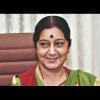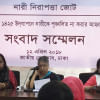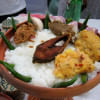The dawn of a new day and a year

With the blinding morning rays breaking through the changing clouds, the harbinger of new beginnings envelops the land of Bangladesh in true zeal and splendour. It is Pahela Baishakh once again and the dominating rush of reasserting the glorified Bengali spirit has us enchanted, with the spell working its charm from the very break of early dawn.
With its signature roaring and flashes of thunder and lightning, the season of the Kal-Baishakhi is upon us, with its definite companion, Pahela Baishakh. And it all begins with 14 April (the Roman calendar date coinciding with the 1st Baishakh, the beginning of the Bengali calendar), a day reserved for the lauding and celebration of our roots.
Baishakh was not always what it is today. Turning back the clock, small hamlets and towns of Bengal would rejoice in the New Year in their own muted celebrations before we ended up with the large scale celebration that we observe today.
The occasion, while still acknowledged, was rather a normal affair for the common folk; yet the businessmen had long celebrated it, irrespective of their religion.
The passion and love for Bengali was renewed due to the cultural oppression, by the West Pakistanis. The spirit of Baishakh was re-ignited in the '60s, with a movement towards independence.
"After the fervent fight during the Liberation War of '71, the Bengalis felt a vehement need to assert their rights and reinforce their cultural heritage. Since the independence, Pahela Baishakh has gained an impetus, a historical dimension," notes Syed Badrul Ahsan, a veteran journalist.
It is this very love for one's heritage, rekindled year after year that is displayed through the epic celebration which is Pahela Baishakh.
Embracing the new season with open arms, the nostalgic Baishakhi morning marks the onset of soothing summer breezes over fields blossoming with seasonal fruits and fresh buds. Business is welcomed, prosperity is wished for and yesteryear's stories are left behind to make way for new ones. The joviality of the festival sweeps everyone off their feet; even the greens in nature celebrate the new season.
The celebration of Baishakh begins with sweet symphonies of double-stringed instruments covering Baul songs and nostalgic renditions of Tagore, Nazrul and other legends of Bengal.

Enriched with poetry and dedicated speeches, the morning procession is a celebration of colours and flagrant expression of pride the Bengali community holds for their enriched cultural identity.
Men in dapper traditional attires and women with a spring in their step and clinks from their timeless jewellery flock to processions or to the iconic Ramna or the colourful fairs. But that's not the case for everyone.
"On Pahela Baishakh, it is simply a case of how Bengali we are and how Bengali we feel," simplifies Ahsan.
While mediums of expressions may differ, waking up on a Baishakhi morning is nostalgic. Whether you decide to be out and about taking in the glow of the hot sun or choose to enjoy Baishakh in simplistic ways, the essence of Baishakh is revived every year.
Muted ways to revive Baishakh could entail satiating hunger by helping oneself to the home-cooked Baishakhi feast spread on the table. After a sensory overload of aromas and tastes, one may also choose to languor away the rest of the day to the melodies of Lalon Shah and the company of family.
In any scenario, the Baishakh morning is truly an individualistic expression of what truly encapsulates being a Bengali.
The Baishakhi morning is not just about individual plans to commemorate the Bengali culture. It is the collective effort of the people of Bengal setting aside a singular day to bask in the pride and joy of being Bengali.
Keeping up with latest trends in the fashion scene, Baishakh, especially causes a boom in demand for Baishakh-themed collections. Designs, inspirations and colours are transformed from mere sketches on paper to standout creations hitting stores and shopping malls even before April.
Moreover, Baishakhi fairs held at various locations selling various knick-knacks are a major attraction.
Pahela Baishakh is an integral part of the Bengali culture, to say the least.
Ahsan weighs in on the importance of the timeless festival, "After years of turmoil, we need to convince people of our heritage and make our cultural background the base of our activities if we want to move forward as a nation. Pahela Baishakh is one of our roots. We begin from our roots and move forward to everything else."
With the ushering of new beginnings and festivities in tow, the first rays of the first Baishakhi morning finally break to make way for yet another year. And it all starts with the very first dawn.
Photo: Sazzad Ibne Sayed
Model: Mysha
Wardrobe: Aranya
Styling: Sonia Yeasmin Isha
Make-up: Noyon Ahamed
Location: The Palace Luxury Resort, Bahubal, Habiganj










Comments